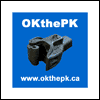An areal photo of the Irving Oil refinery in Saint John - Date/Photographer unknown. 17 December 2013 Lake Megantic Probe Docs Note
Irving Oil's Growing Rail Use Saint John New Brunswick - Court documents filed as part of the investigation into the Lake Megantic rail explosion show just how big oil-by-rail shipments have become for Saint Johns Irving Oil refinery.
Transport Canada investigators filed a 17-page information to obtain a warrant last week to search the offices of Irving Oil at the refinery on Loch Lomond Road in Saint John.
They say they're looking at whether Irving Oil followed proper safety rules for importing dangerous goods and whether the tanker cars were properly labelled with the required flammability classification for the crude oil.
The information to obtain document was drafted by Marc Grignon, a senior inspector with Transport Canada for the transportation of dangerous goods.
Irving's Growing Use of Rail Shipments
Grignon's document paints a picture of Irving's growing use of rail shipments.
Traditionally, the company has refined crude oil brought in by tanker ships from overseas.
The shipment that exploded in Lake Megantic originated in the Bakken oilfields of North Dakota.
It crossed into Canada at Windsor, Ontrio, and was hauled by Canadian Pacific as far as Montreal, where MMA took over.
Oil-by-rail shipments of Bakken crude have become popular because the oil is discounted due to the lack of pipeline capacity to carry it to refineries.
The crude was shipped by a Minnesota company, Western Petroleum Company.
But under federal regulation, Grignon says, "When the shipper is based outside Canada, the importer becomes the shipper."
By law, he says, Irving Oil Commercial G.P. is the shipper in the Lake Megantic case.
Irving Oil Co-operating
Irving Oil spokeswoman Samantha Robinson could not comment on the contents of the court documents beyond what the company has previously stated.
"We have received requests from government investigators regarding our operations. We continue to fully co-operate with them, complying with all requests for information. Operations remain normal."
Grignon says Irving began importing Bakken crude oil in November 2012 after buying a "test load" in June 2012.
Between 2 Nov 2012, and 6 Jul 2013, the date of the explosion, MMA hauled 67 trains bound for the Irving refinery in Saint John, the document says.
The shipments are brokered by World Fuel Services, a Florida-based Fortune 500 company.
The document says World Fuel Services helped Irving Oil import 3,830 tanker cars of crude oil between November 2012 and July 2013.
Crude Trains Averaged 80 Tanker Cars
"It is important to note that light crude oil trains delivered to Irving Oil Ltd. include on average 80 tanker cars," Grignon says.
What's not clear from the document is what percentage of the refinery's total crude intake is represented by oil shipped by rail.
Irving Oil hopes to start receiving Alberta crude by pipeline as part of the Energy East project being proposed by Trans-Canada Corporation.
One rationale for the pipeline is that it's a safer way of transporting crude than by rail.
Before the explosion, MMA hauled the trains as far as Brownville Junction in Maine, where they were transferred to railways owned by J.D. Irving Ltd. for the remainder of the trip to Saint John. Author unknown. | 

